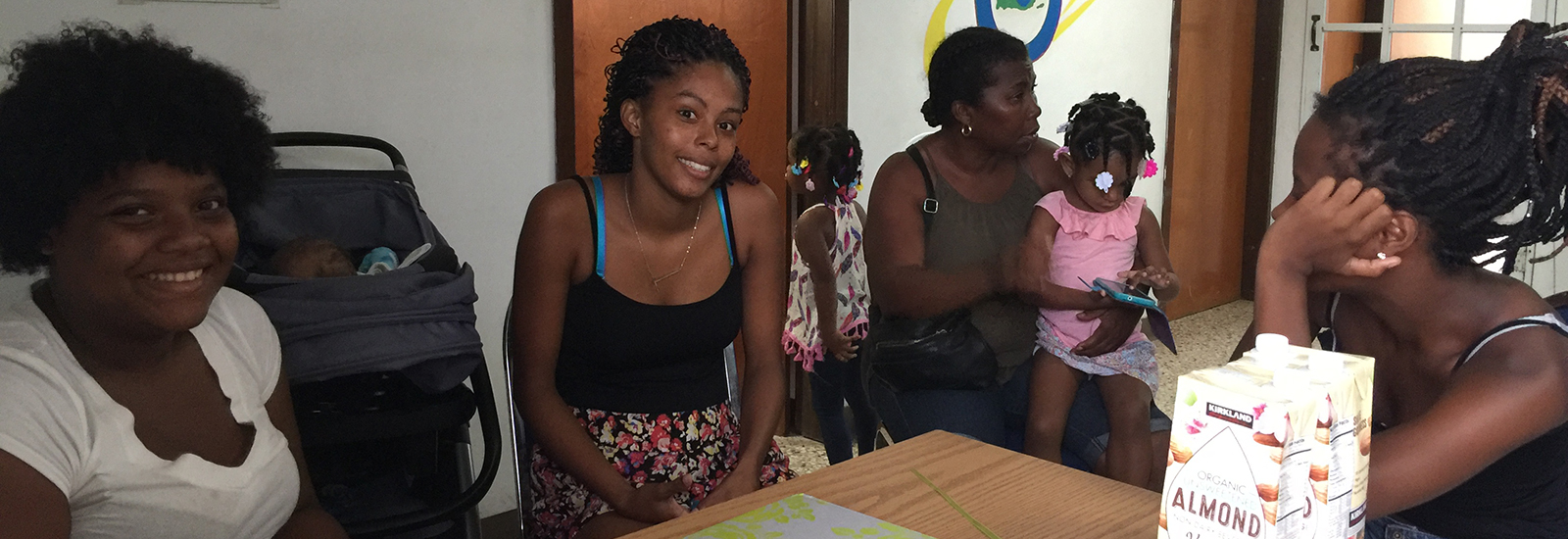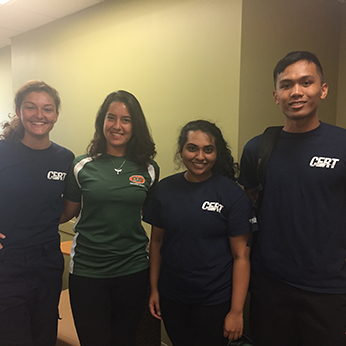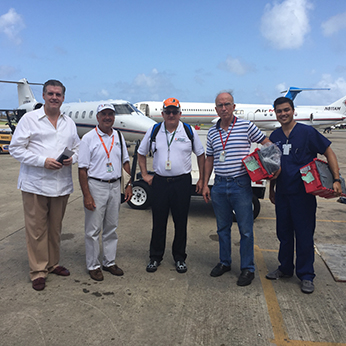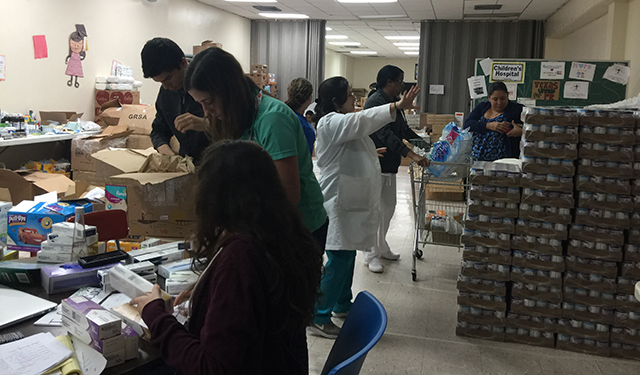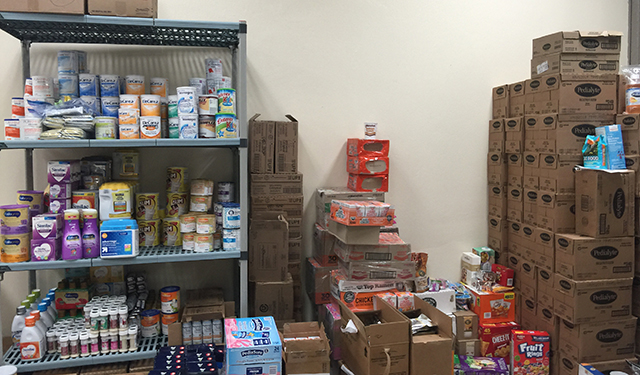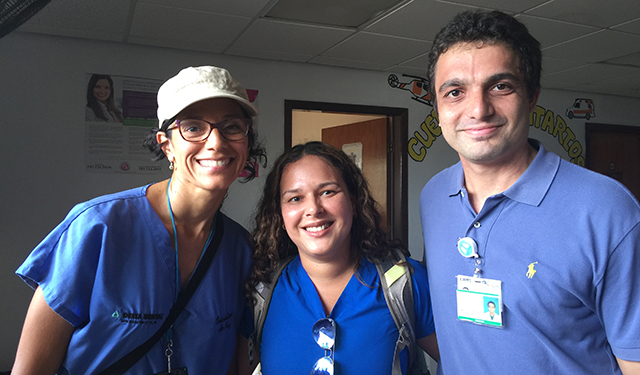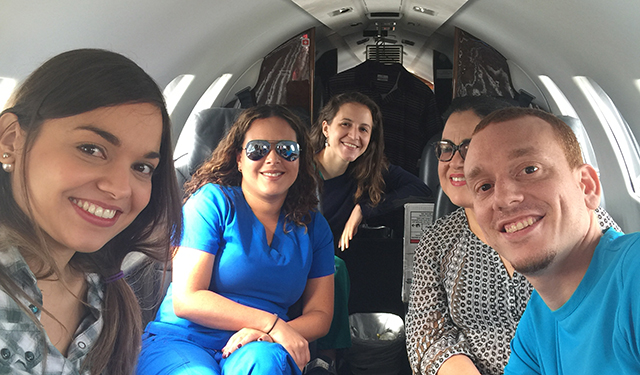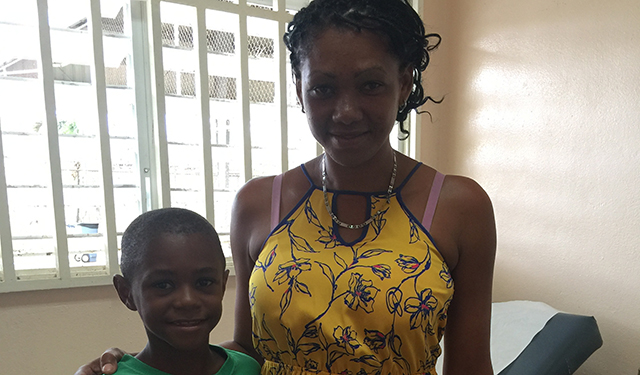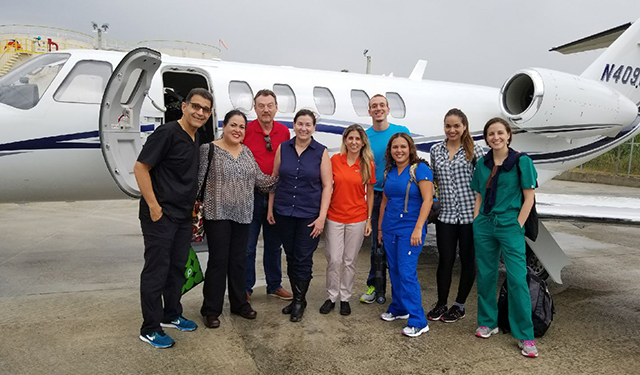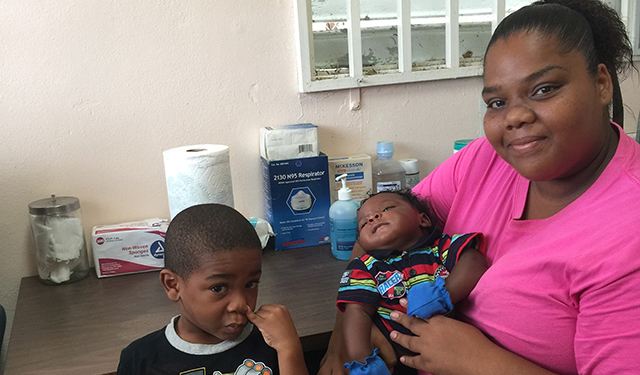From San Juan, the UM team traveled to Pinones and Canovanas, east and south of the capital, to provide immediate assistance to residents living in crowded shelters.
“We cared for a number of patients who hadn’t had access to a pediatrician since the hurricane hit more than two weeks ago,” Schaechter said. “We also explained how to sanitize hands when no water is available. We saw cases of scabies, skin infections and abdominal pain as well. It’s very hard to stay healthy when you can’t wash clothes, drink clean water or keep mosquitoes away.”
Back in Miami, Michael Kelley, executive director of strategic operations, said the Miller School is sending a stream of medical supplies and medications to Puerto Rico by private jet so local physicians can continue treating their patients.
“While more and more clinics and hospitals are coming back on line, they are still relying on generator power,” Kelley said. “The ambulatory surgery centers may not be able to reopen until the electric grid is restored.”
Due to the lack of power, Puerto Rico’s physicians and clinics are running out of perishable medications for glaucoma, macular degeneration, diabetes and other conditions that require medications, said Dr. Eduardo C. Alfonso, director of Bascom Palmer Eye Institute, and professor and Kathleen and Stanley J. Glaser Chair in Ophthalmology.
“Through a communications network we set up for ophthalmic care on the island, we are hearing about an increase in acute hemorrhagic conjunctivitis (pink eye), which is very contagious when people are living closely together in shelters. There has also been a sharp increase in traumatic eye injuries from flying debris, clearing streets and roads, and repairing homes and other buildings,” Alfonso said.
The Miller School is also coordinating the shipment of about 150 pallets of donated goods provided through the efforts of Univision and Leon Medical Centers, according to Ron Bogue, assistant vice president for facilities and support services.
“Our leadership team is arranging transportation to get these donations – as well as another 150 pallets of medical supplies – to Puerto Rico as soon as possible,” he said. “We are glad to support these vital relief efforts for patients on the island.”
Looking ahead, Miller School leadership, faculty and students are continuing to assess the medical and public health situation in Puerto Rico and how they might impact South Florida in the future.
“We expect to see more children and families come here for care,” said Schaechter. “We want to help them make the adjustment and provide for their physical, mental and emotional well-being.”



